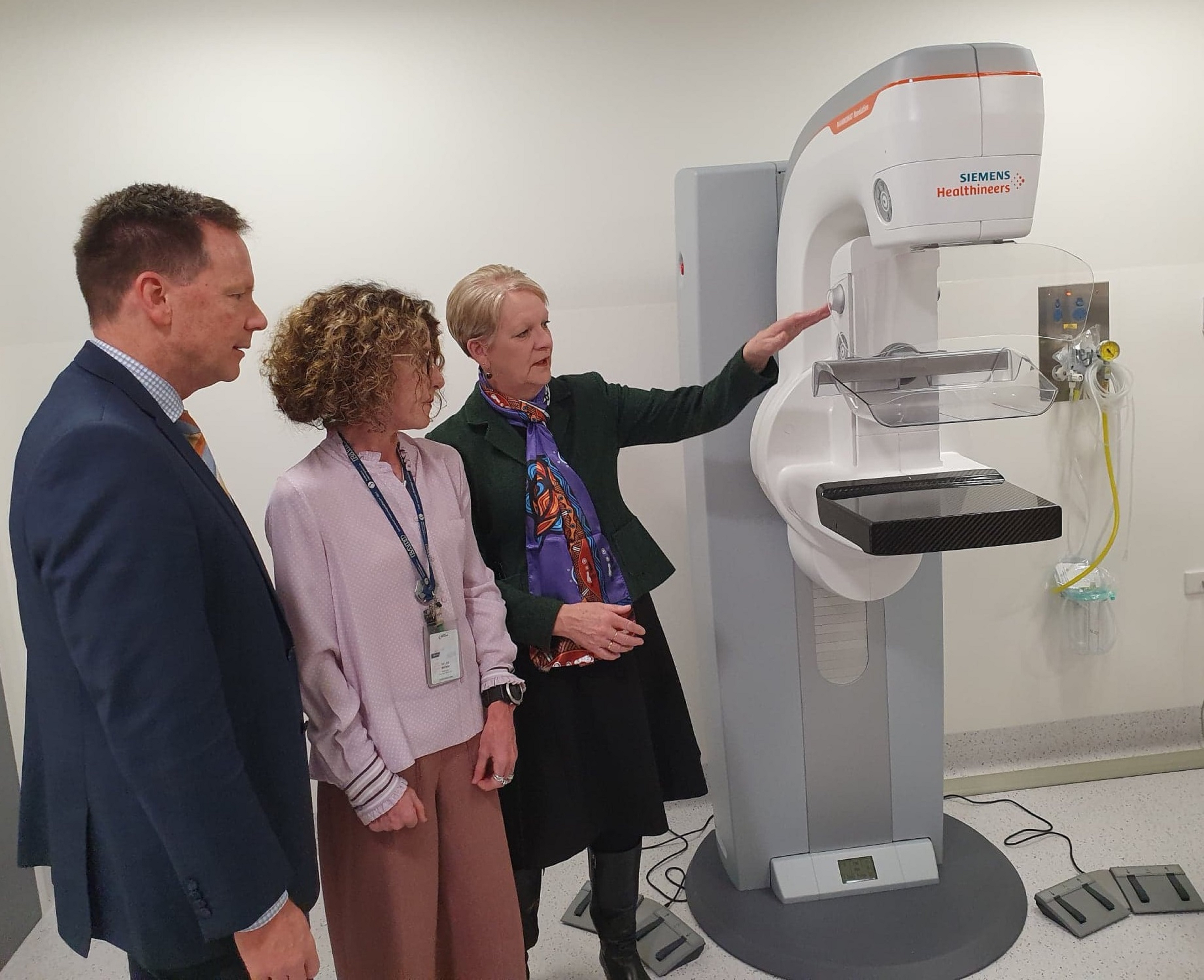 Bendigo Health Board Chair Bob Cameron, Radiologist Jill Wilkie and Member for Bendigo West Maree Edwards discuss the new mammography machine.
Bendigo Health Board Chair Bob Cameron, Radiologist Jill Wilkie and Member for Bendigo West Maree Edwards discuss the new mammography machine.
A new mammography machine at Bendigo Health will enhance the ability to detect breast cancer in some high risk women.
The $320,000 machine, funded through the State Government medical equipment replacement program, has the capability to take 3D images and will be the first machine in Bendigo to offer contrast-enhanced mammography.
Member for Bendigo West Maree Edwards said the machine would improve access to 3D mammography for women in the region and was the first time the technology was available in the public system in northern Victoria.
“We want to make sure that every woman has access to screening, that’s why it’s free and we know that having these screens makes a difference to womens' lives, it means that there are better survival rates and better treatments available,” she said.
Bendigo Health chair Bob Cameron said the new technology will improve the hospital’s capacity to diagnose and treat breast cancer patients.
“The rates of survival are already excellent, but they’ll be even better again,” he said.
Latest figures from the Victorian Cancer Registry show 1597 Loddon Mallee residents were diagnosed with breast cancer from 2012-17, an average of 266 per year.
The estimated five-year prevalence of breast cancer in the region in 2017, based on the high expected survival rate, was 1530.
Bendigo Health Radiologist Jill Wilkie said the machine takes a series of images instead of one, which provides greater clarity and improved diagnostic capability.
“Potentially this will help with earlier diagnosis and giving more information about the extent of disease for women but also gives us a great deal of more confidence in clearing women who we think don’t have breast cancer,” she said.
“We hope that it will be more accurate diagnosis and more specific diagnosis for that woman to determine how extensive that cancer is.”
The diagnostic test is different to a breast screen, which is recommended for healthy women aged between 50 and 74.
Bendigo Health imaging staff are now undergoing training to ensure the benefits and features the new technology are used to optimise patient care.